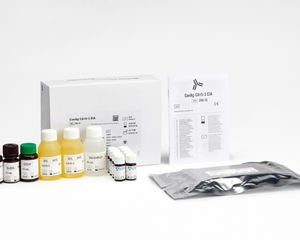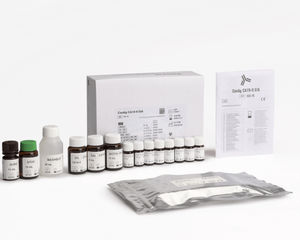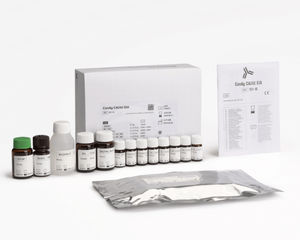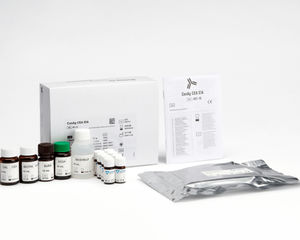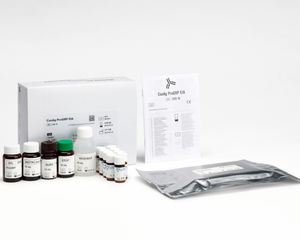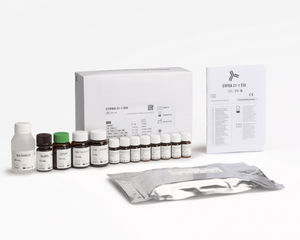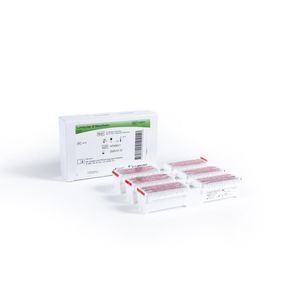
- Company
- Products
- Catalogs
- News & Trends
- Exhibitions
PSA reagent CanAg®proteasepathology
Add to favorites
Compare this product
Characteristics
- Type
- protease
- Applications
- pathology
- Tested parameter
- PSA
Description
PSA is a 32 kDa single-chain, glycoprotein serine protease with a chymotrypsin-like specificity produced by the secretory epithelium of the prostate gland1. PSA is normally secreted into the seminal fluid and plays a functional role in the cleavage of the seminal vesicle proteins and the liquefaction of the seminal coagulum2. Only low levels of PSA are normally present in the blood stream, and increasing serum concentrations indicate prostatic pathology, including benign prostatic hyperplasia and cancer of the prostate. Determination of PSA is now widely used for detection and management of patients with prostatic cancer and considered as the superior serological marker for cancer of the prostate3.
PSA has been shown to form stable complexes with different antiproteases and the dominating portion of PSA in patient serum occurs in complex with α1-antichymotrypsin (PSA-ACT)4. However there are large variations in the relation between Free PSA and PSA-ACT complex between different individuals. Studies have also indicated that the proportion of Free PSA is higher in benign prostatic disease as compared to prostatic cancer5. The antibodies in the PSA EIA have been carefully evaluated and selected to give the same molar response for Free PSA as for the PSA-ACT complex7. The PSA EIA thus gives a true “total” PSA value independent of the individual variations of free and ACT-complexed PSA.
Related Searches
- FUJIREBIO test kit
- FUJIREBIO solution reagent
- FUJIREBIO blood test kit
- FUJIREBIO serum test kit
- FUJIREBIO immunoassay test kit
- FUJIREBIO plasma test kit
- FUJIREBIO infectious disease test kit
- FUJIREBIO research reagent
- FUJIREBIO diagnostic reagent
- FUJIREBIO laboratory reagent
- FUJIREBIO protein reagent
- FUJIREBIO molecular biology test kit
- Enzyme reagent kit
- Whole blood detection kit
- FUJIREBIO respiratory disease test kit
- Histology reagent kit
- FUJIREBIO clinical test kit
- Optical assay kit
- Cassette assay kit
- Immunology reagent
*Prices are pre-tax. They exclude delivery charges and customs duties and do not include additional charges for installation or activation options. Prices are indicative only and may vary by country, with changes to the cost of raw materials and exchange rates.




